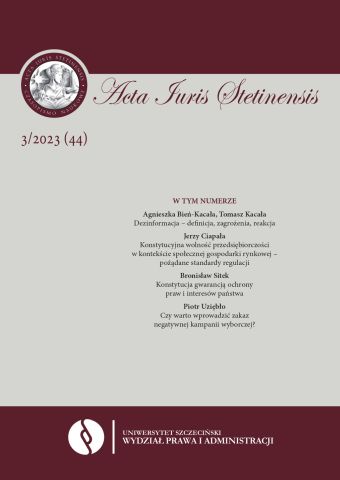Konstytucyjne uwarunkowania transitional justice po epizodzie regresu praworządności w świetle standardów europejskich a kwestia statusu sędziów
Constitutional determinants of transitional justice after the decline of the rule of law in the light of european standards: the issue of the status of judges
Author(s): Marcin GórskiSubject(s): Law, Constitution, Jurisprudence, Constitutional Law, Law and Transitional Justice, Philosophy of Law
Published by: Wydawnictwo Naukowe Uniwersytetu Szczecińskiego
Keywords: ECHR; transitional justice; right to a fair trial; National Council of the Judiciary
Summary/Abstract: The aim of the article was to establish the parameters of administering transitional justice in the aspect of disqualifying justice, stemming from the European Convention on Human Rights and currently defining the standard of interpretation of the Convention established in the jurisprudence of the European Court of Human Rights. The parameters determined in this way were applied to the problem of verifying the status of persons who obtained judicial nominations as a result of procedures involving the so-called neo-KRS (National Council of the Judiciary as constituted by the law of 2017). The legislative drafts submitted to the Polish legislator were assessed against these criterions. It was found that only the draft presented by the Association of Polish Judges Iustitia fulfilled the ambitions of imposing disqualification justice. A critical analysis of this draft was carried out, indicating that it should be generally assessed positively, with some reservations relating mainly to the problem of the lack of judicial control over the proposed verification process and to doubts related to the proportionality principle. The formal and dogmatic method and the analysis of jurisprudence (mainly the ECtHR) were used to carry out the analysis.
Journal: Acta Iuris Stetinensis
- Issue Year: 2023
- Issue No: 44 (3)
- Page Range: 43-58
- Page Count: 16
- Language: Polish

